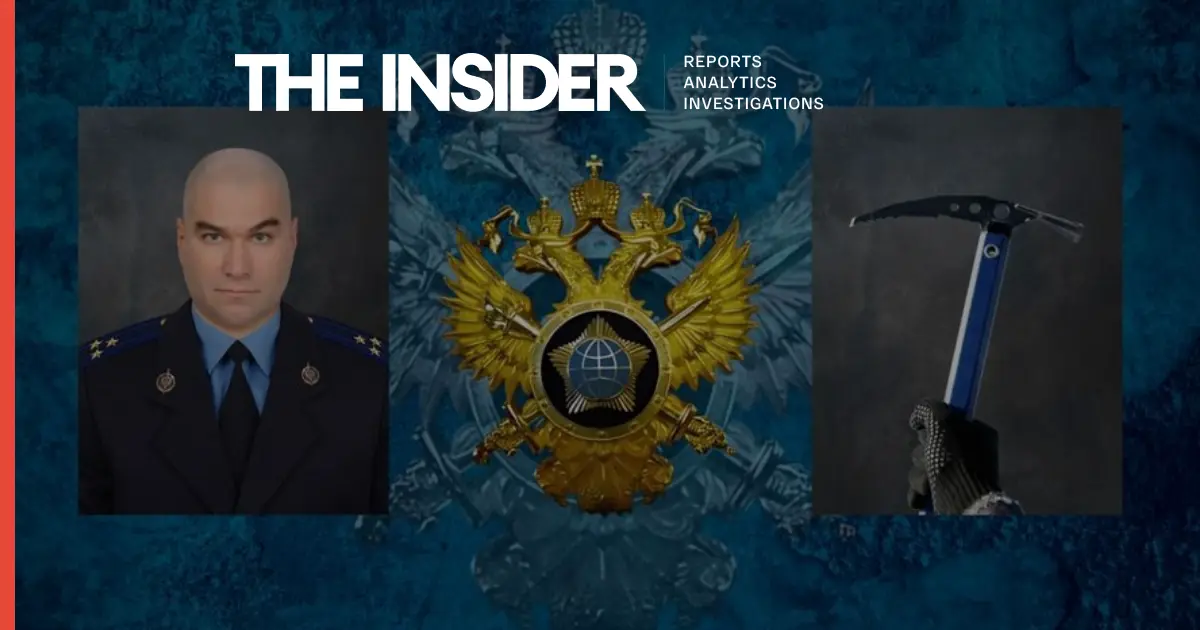The Insider has obtained hacked correspondence from officers of Russia’s foreign intelligence agency (SVR) responsible for “information warfare” with the West. The leaked documents, intended for various government agencies, reveal the Kremlin’s strategy: spreading disinformation on sensitive Western topics, posting falsehoods while posing as radical Ukrainian and European political forces (both real and specially created), appealing to emotions — primarily fear — over rationality, and utilizing new internet platforms instead of outdated ones like RT and Sputnik.
The documents also detail localized campaigns against Russian émigrés, including efforts to discredit a fundraiser for Alexei Navalny’s Anti-Corruption Foundation who had moved to the United States.
-
The secret disinformation operation was codenamed “Project Kylo,” perhaps in reference to the antiquated Russian word for “pick-axe,” or an allusion to the Dark Side warrior from the Star Wars sequels determined to rule the galaxy. Or maybe both.
-
The key emotions to prey upon, the SVR planners intoned, were “fear,” “panic” and “horror” — a psychosocial manipulation campaign straight out of the Cold War playbook of the Soviet KGB’s First Chief Directorate’s Department D. The D stood for disinformation.
-
The architect of Kylo was Mikhail Kolesov, a pudgy, bald, 45 year-old SVR officer who was previously stationed in Kabul, Afghanistan. On May 23, 2022, Kolesov emailed himself a Word document titled simply, “Propaganda.” It appeared to be the outline of a presentation Kolesov was set to give three days later at a private roundtable discussion in the Russian Senate concerning “information warfare with the West.”
-
That forum, headed by former Soviet diplomat turned hawkishly anti-Western senator Alexei Pushkov, featured recognizable mouthpieces of Vladimir Putin’s regime including Maria Zakharova, the Foreign Ministry spokesperson, psychological warfare specialists from the Ministry of Defense, and loyalist journalists.
-
Pushkov was gravely worried about how pro-Ukrainian sentiments were dominating on Western internet platforms, and disappointed by Russian media. The Kremlin was losing on two battlefields: physical and informational. Using “old” state-controlled media organs such as RT and Sputnik “have demonstrated near-zero effectiveness for decades, not years;” and attempts to cultivate friendly social media platforms, such as Telegram channels, “does not live up to the expectations placed on performers and demiurges. Lack of creativity, hypocrisy and moralizing aggravate the current situation.”
-
Kolesov’s fresh proposal, crafted in a stilted language — equal parts critical theory, pseudo-science, and marketing jargon — was therefore designed to inject a new scheme into the Kremlin’s propaganda approach: “systematic, targeted and active, offensive in nature.”
-
Rather than propounding straightforward pro-Russian arguments, he suggested, the SVR should now aim to “deepen internal contradictions between the ruling elites” in the West by creating a fake NGO - in reality a cut-out funded and run by agents of the Kremlin — to whip up anti-establishment demonstrations on the territory of the glavnyi protivnik, or “main adversary".
-
Fake advertisements disguised as news headlines, all crafted by SVR recruits, would be visible on most any desktop computer screen or mobile device used by target audiences in the West, luring them to click-through and land on “internet resources controlled by the Kremlin.
-
"Waging network wars in EU cyberspace based on the increasing demands of Ukrainian migrants and the new waves of irritation of the local population provoked by this, according to preliminary estimates, will have a very high efficiency both now and in the foreseeable future.”
-
German authorities, for exampke, have identified over two dozen legitimate-seeming news websites catering to exactly these fears, with articles headlined (in fluent German), “How Ukrainians are robbing Germany of economic prosperity.” The portals are part of a vast Russian influence operation.
-
European politicians had already been clamoring about Ukrainians fleeing the war and becoming burdens on state resources. For instance, in September 2022, Friedrich Merz, the leader of the Christian Democratic Union of Germany, the country’s conservative party, had accused Ukrainian refugees of “welfare tourism,” an allegation for which Merz later apologized.
-
The “leitmotif of our cognitive campaign in the [Western] countries is proposed to be the instilling of the strongest emotion in the human psyche — fear,” the [propaganda] document states. “It is precisely the fear for the future, uncertainty about tomorrow, the inability to make long-term plans, the unclear fate of children and future generations. The cultivation of these triggers floods an individual’s subconscious with panic and terror.”
-
2023 saw its fair share of Russian-sponsored provocations seemingly aligned with Operation Kylo all across Europe. Research by a European media consortium revealed that a roving troupe of Russian hirelings kept turning up at protests in major cities such as Paris, Brussels, Madrid, and The Hague denouncing Western arms shipments to Ukraine. The men, the consortium concluded, had likely been hired by Russian special services.



Are you trying to say “Well the US sucks, so… don’t… don’t criticize Russia… man…”
Or are you trying to say “States gonna be states and do shitty state things.”